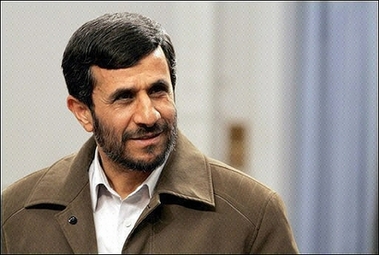Iran protest targets Brit Embassy
(AP)Updated: 2007-04-01 21:44
The protesters chanted "Death to Britain" and "Death to America" as they hurled stones into the courtyard of the embassy. They also demanded that the Iranian government expel the British ambassador and close down the embassy, calling it a "den of spies."
Britain's Foreign Office said there had been no damage to the compound.
A British Foreign Office spokeswoman in London, speaking on condition of anonymity in line with government rules, said diplomats were working normally inside the embassy.
"There is a police presence outside and there is no risk to those inside," said the spokeswoman.
Britain and Iran are at a standoff over the 15 seized sailors and marines. Britain said they were in Iraqi waters when detained, but Iran has contended the Britons entered its waters illegally.
British government and defense officials refused to discuss a report that claimed a Royal Navy captain or commodore would be sent to Tehran as a special envoy to negotiate the return of the personnel.
The official would deliver an assurance that British naval crews would never deliberately enter Iranian waters without permission, the Sunday Telegraph newspaper reported.
Transport Minister Douglas Alexander said Britain was engaged in "exploring the potential for dialogue with the Iranians."
"The responsible way forward is to continue the often unglamorous, but important and quiet diplomatic work to get our personnel home," Alexander told the British Broadcasting Corp.'s Sunday AM program.
British Foreign Secretary Margaret Beckett appeared to soften rhetoric against Iran Saturday ¡ª though she stopped far short of the apology sought by many in Iran.
"I think everyone regrets that this position has arisen," Beckett said in Bremen, Germany, before returning to England. "What we want is a way out of it."
President Bush on Saturday called for the release of the sailors and marines and labeling their capture "inexcusable behavior."
"Iran must give back the hostages," Bush said. "They're innocent, they did nothing wrong, and they were summarily plucked out of waters."
Eight British sailors and seven marines were detained by Iranian naval units March 23 while patrolling for smugglers near the mouth of the Shatt al-Arab, a waterway that has long been a disputed dividing line between Iraq and Iran.
Iranian President Mahmoud Ahmadinejad called world powers "arrogant" for refusing to apologize.
"Instead of apologizing over trespassing by British forces, the world arrogant powers issue statements and deliver speeches," Iran's official IRNA news agency quoted Ahmadinejad as saying during a speech in the southeastern city of Andinmeshk.
A poll published in the Sunday Telegraph newspaper found that 66 percent of respondents trusted Blair and Beckett to resolve the crisis, while 28 percent did not. Only 7 percent thought the government should be preparing to use military force.
Pollster ICM interviewed 762 adults by telephone March 30 and 31. The margin of error is 4 percentage points.
|
||
|
||
|
|


